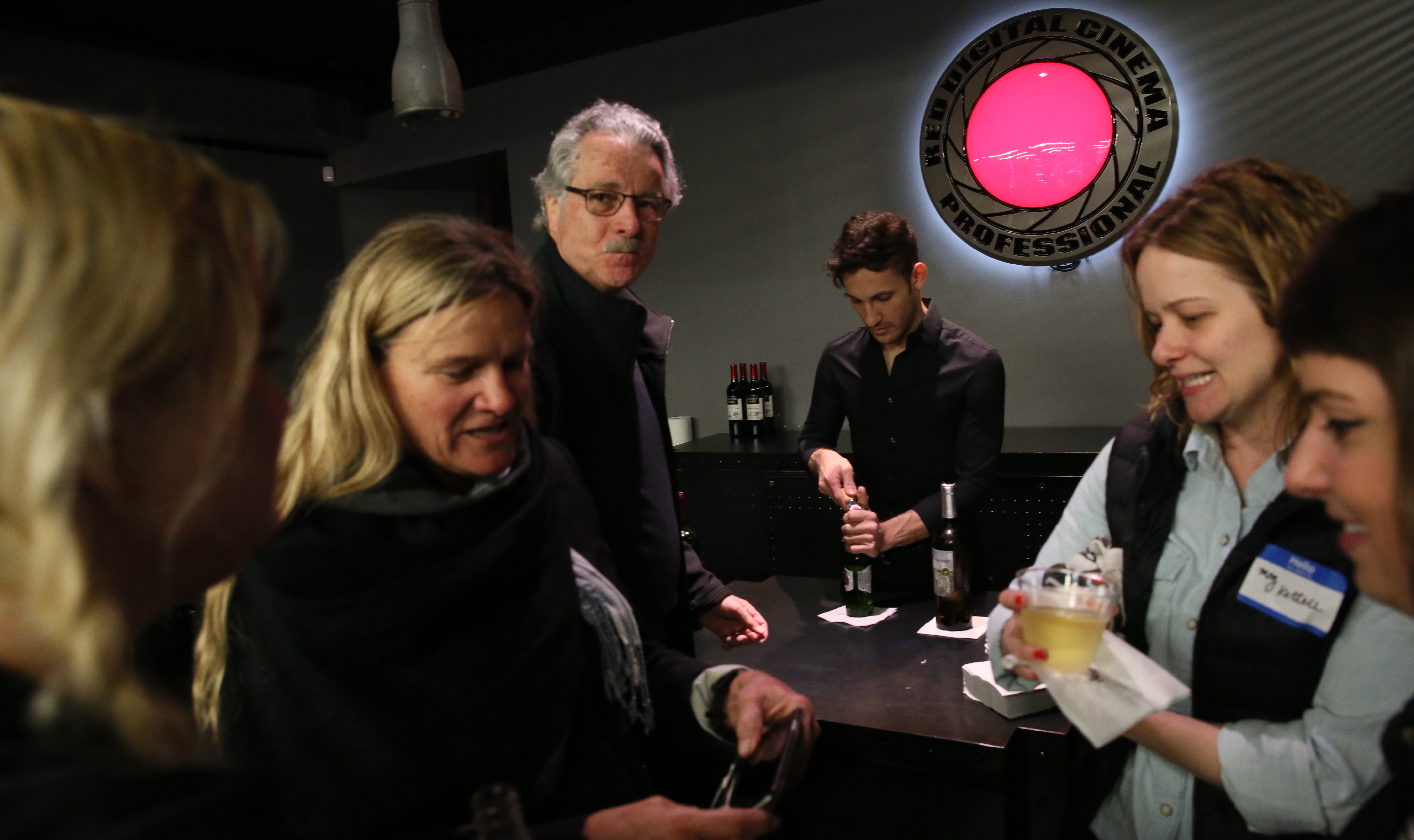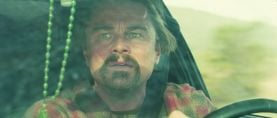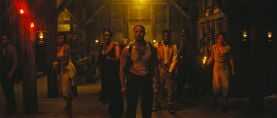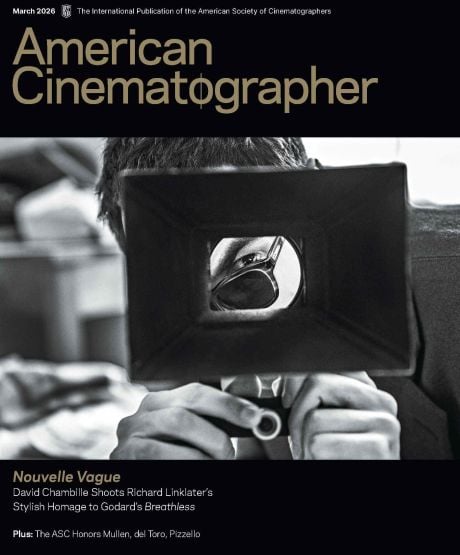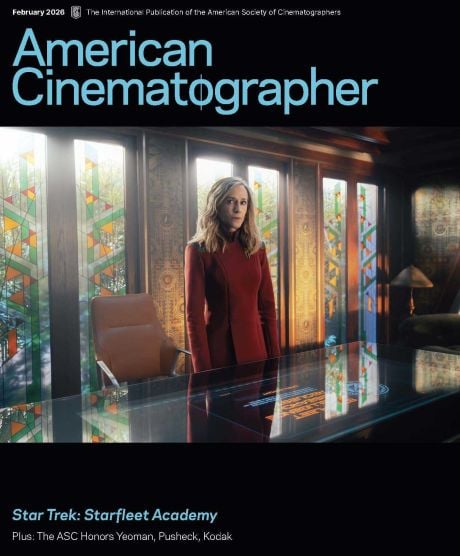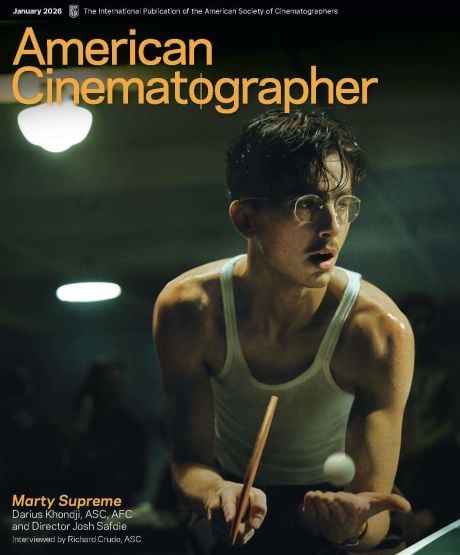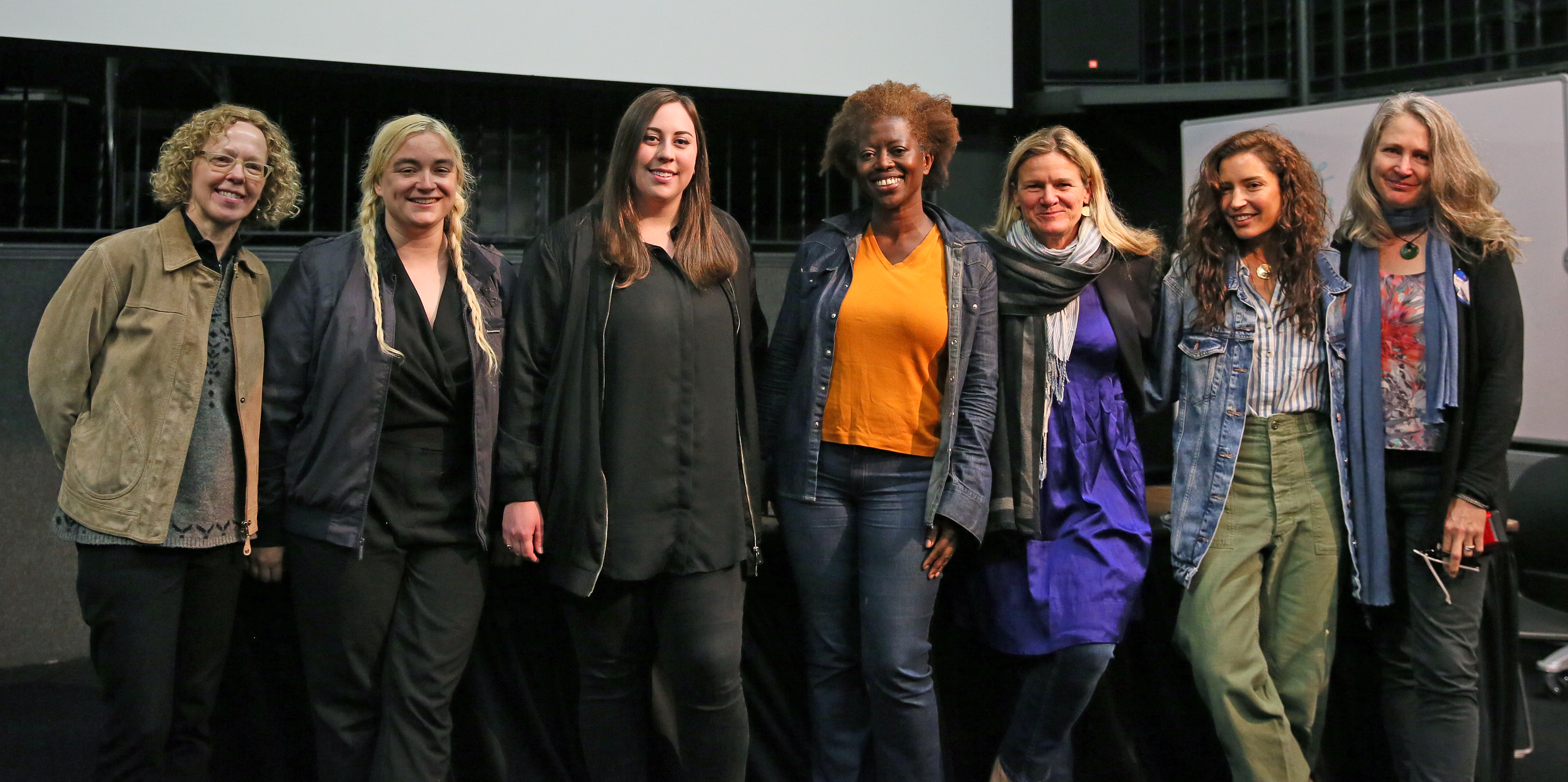
ASC Holds Inspiring “Day” In NYC
For this special event, Society members Ellen Kuras, Reed Morano and Cynthia Pusheck joined other female film professionals in Manhattan to discuss the challenges and opportunities they have encountered while building their careers.
By Rachael K. Bosley • Photos by Alex Lopez
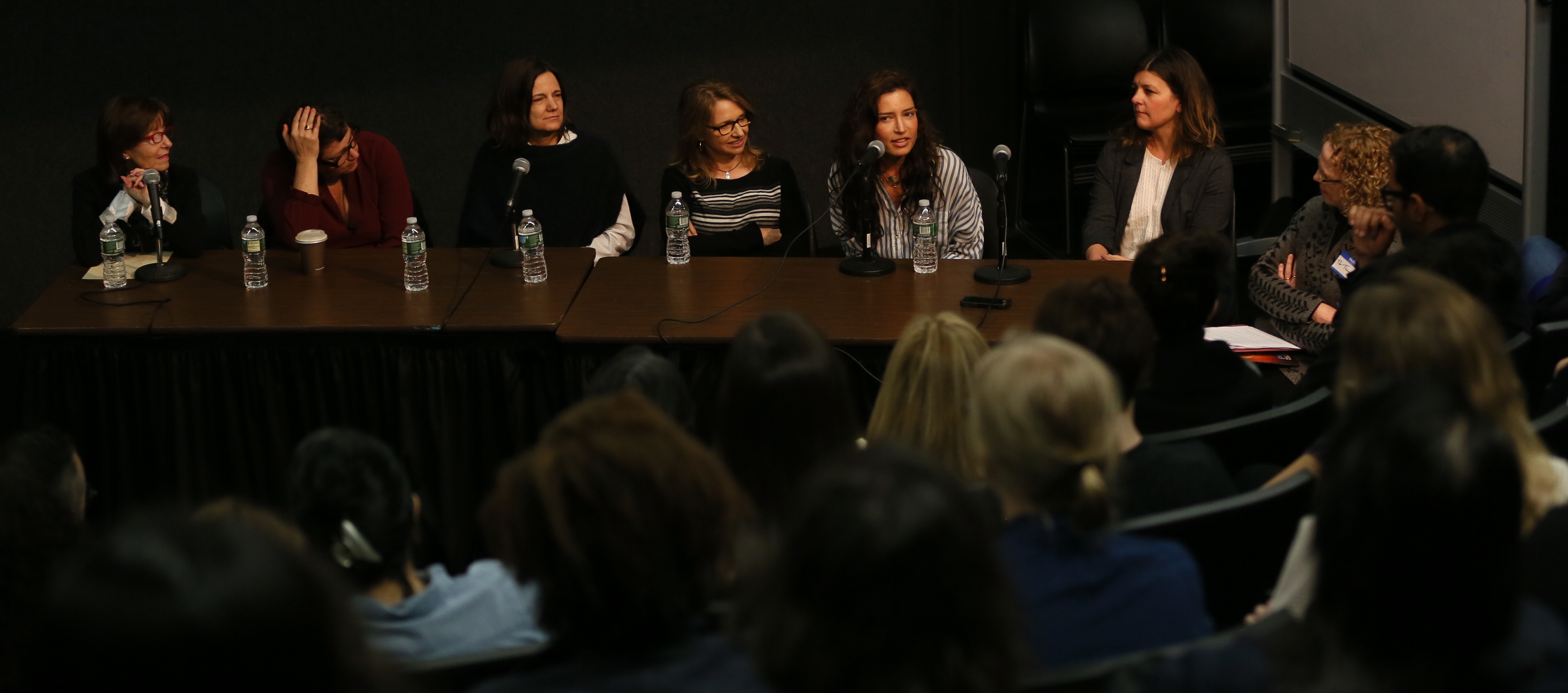
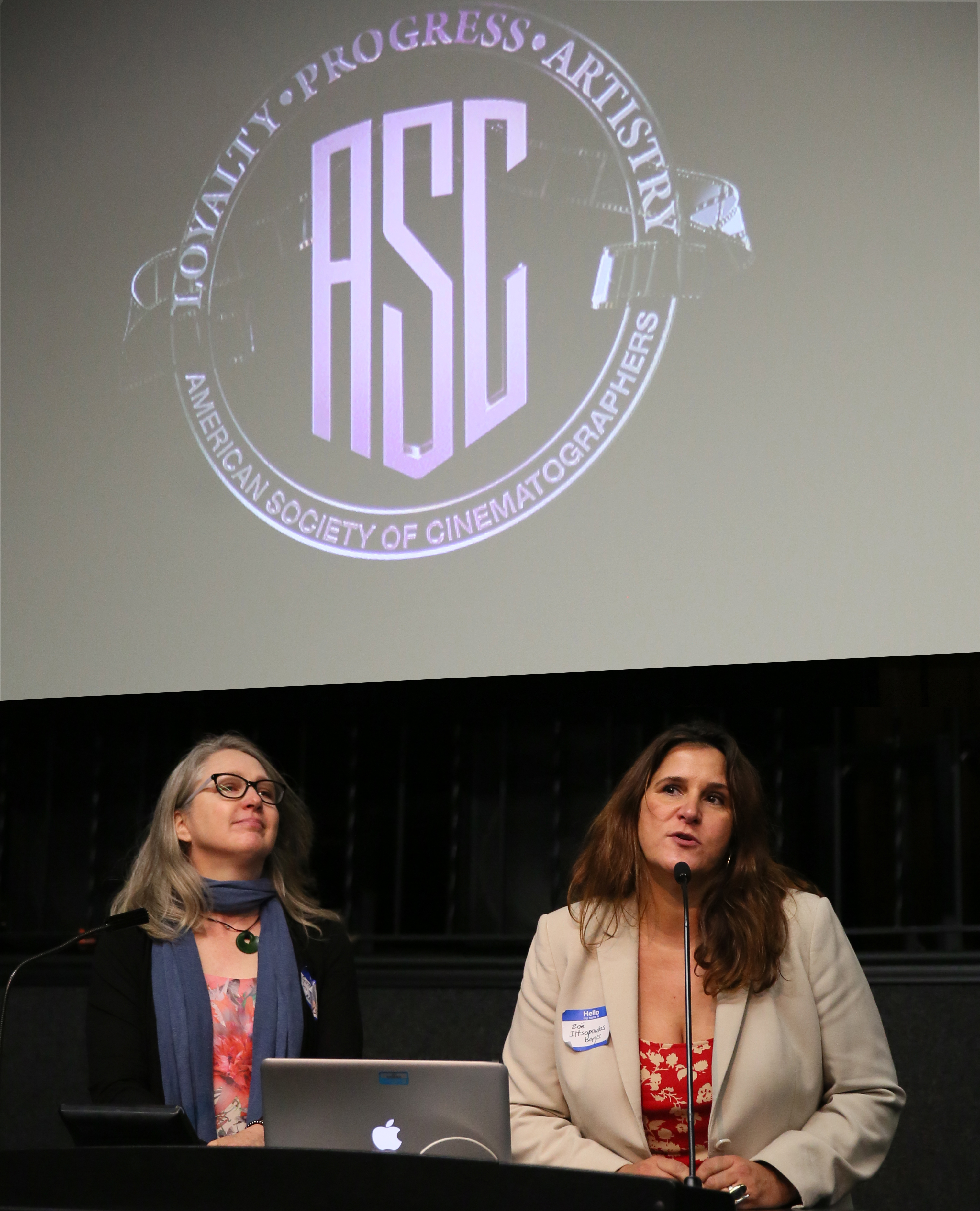
Women from across the industry came together to discuss their varied careers with an audience of young female filmmakers in New York City on May 9, a “Day of Inspiration” organized by the American Society of Cinematographers, sponsored by PRG and Red Digital Cinema, and hosted by the School of Visual Arts.
The participating panelists were ASC members Ellen Kuras, Reed Morano and Cynthia Pusheck; Terra Bliss, vice president and general manager of Panavision New York; producers Amy Hobby and Anne Hubbell, co-founders of Tangerine Entertainment, a production company focused on women directors; agents Julia Kole (of Artistry) and Sherry Rousso (of Sherry Rousso Associates); and up-and-coming cinematographers Dagmar Weaver-Madsen, Cybel Martin and Cailin Yatsko. American Cinematographer contributing writer Patricia Thomson moderated the discussion.
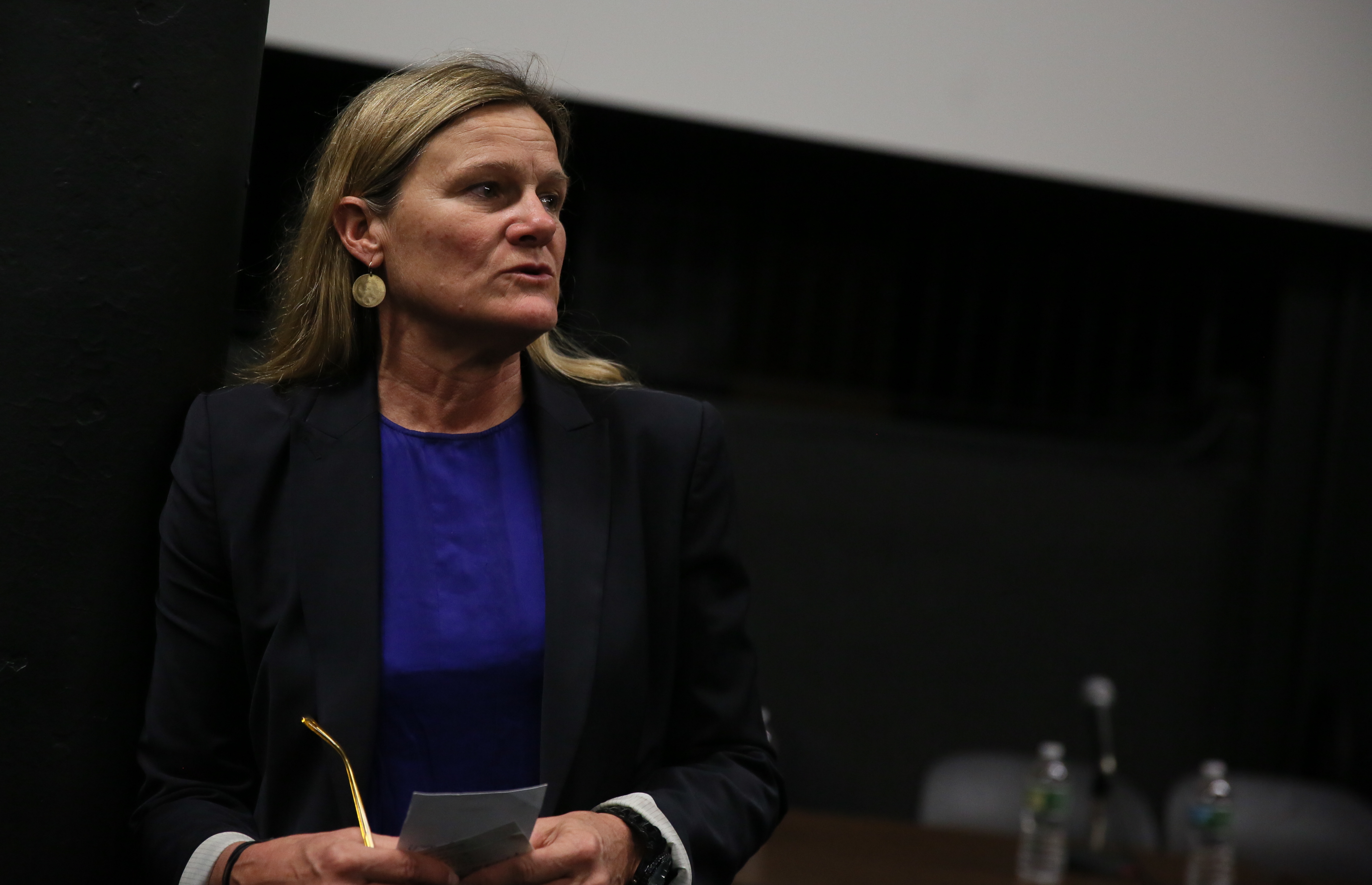
In addition to emphasizing the importance of perseverance and networking, the panelists agreed that the smaller, more independent nature of New York’s film community tends to make it more receptive to new talent than Los Angeles. “I think of New York as a community and Hollywood as an industry — people help each other [here],” said Hubbell, who is also a vice president at Eastman Kodak.
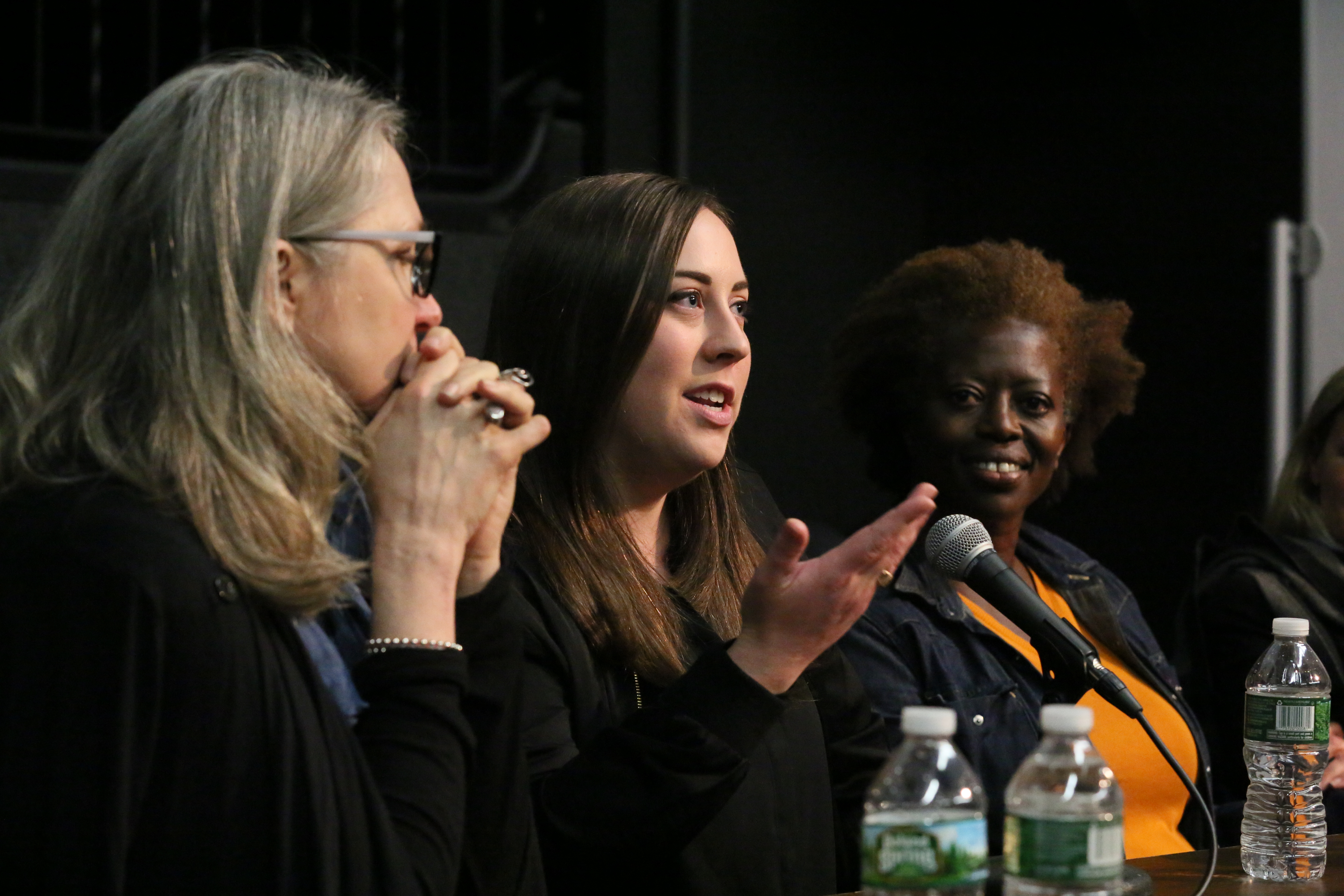
Rousso counseled the audience to be “respectfully relentless. I always tell my clients they have to put themselves out there, keep networking, keep moving. Once you get an opportunity, you have to do the best you can possibly do. And when someone asks you to do something, do more.”
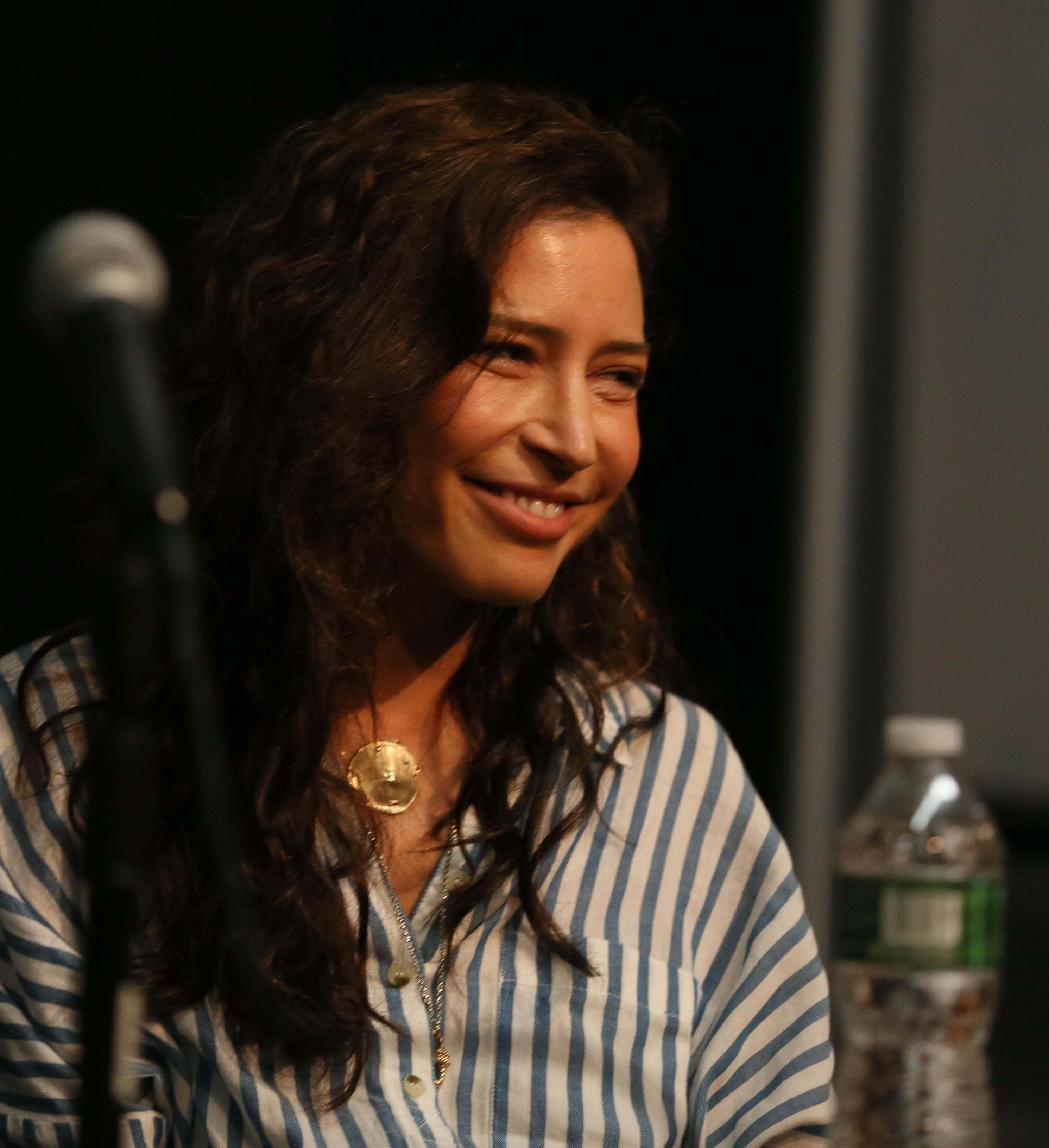
Adding to the point about perseverance, Morano noted, “It took seven years of work to get the script that changed things [for me], which was Frozen River.” She added that she applied for that job through Craigslist, “and I’m pretty sure I was the second or third choice for it.” Released in 2008, Frozen River won a Grand Jury Prize at the Sundance Film Festival and received two Academy Award nominations.
Morano recalled that in the wake of the film’s success, she had a discouraging round of meetings with Hollywood agents, but ended up finding representation by chance while attending the Independent Spirit Awards and striking up a conversation with another woman. “I didn’t even know she was an agent,” said Morano, “but we hit it off.” (The agent, Mira Yong, who has represented Morano since then, was in the audience at the ASC event.)
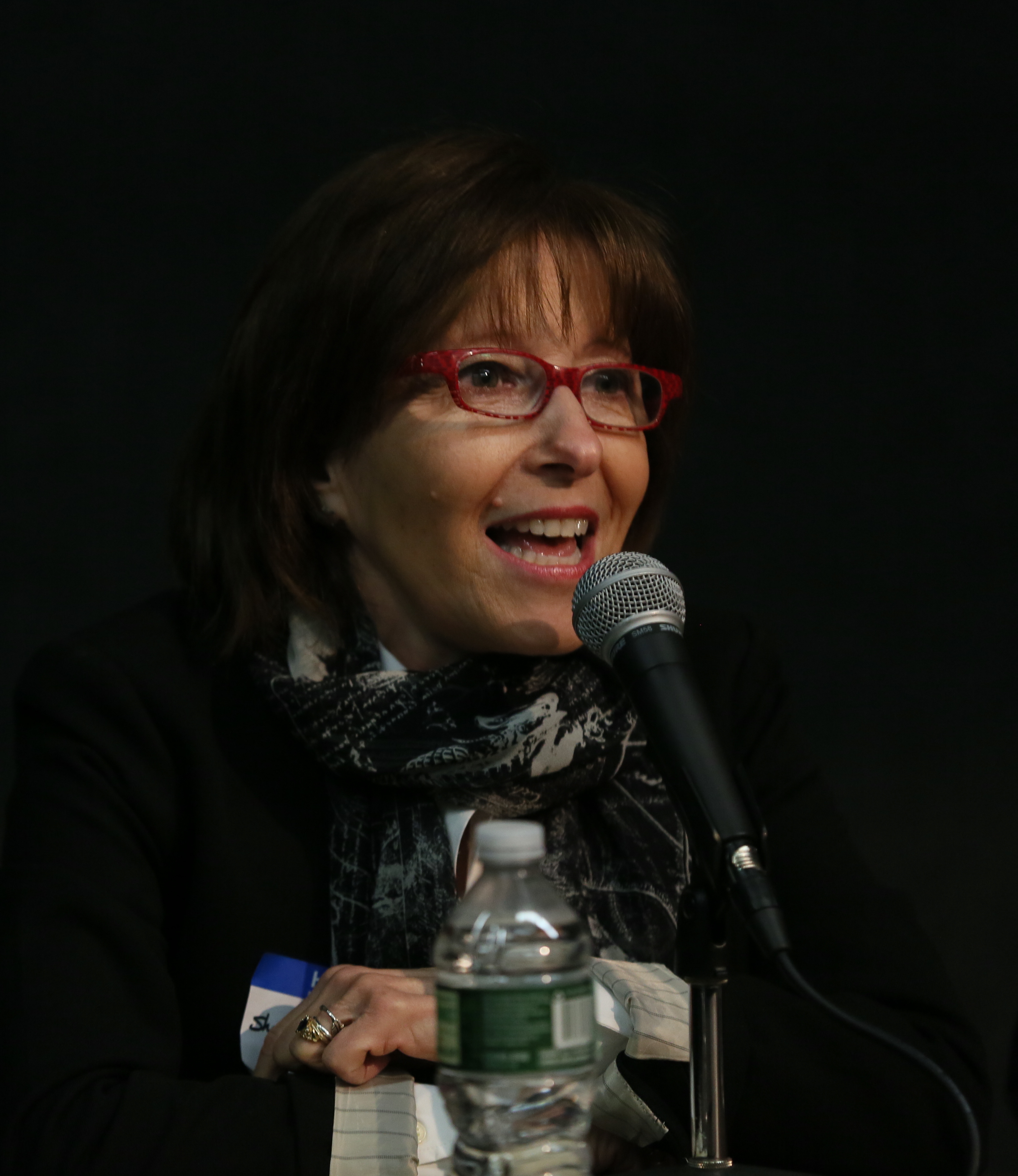
“The agent-client relationship is such a personal one — it’s about taste and judgment, and you’re always growing with that person,” said Kole. Recalling that she represented Emmanuel Lubezki, ASC, AMC at the outset of his career, she said, “When Like Water for Chocolate came out and he had this meteoric rise, we’d been talking for a year and a half about the kind of work he wanted to do. The initial work of creating your career is a very concentrated effort. When you get an agent, you can’t just sit back and think, ‘I’ve got an agent now, and he or she is going to find me work.’ It doesn’t happen that way.”
Addressing the relationship between the cinematographer and the producer, Kuras noted, “My last five projects came to me through the producers. If the director doesn’t have a relationship with a specific cinematographer, it’s typically the producer who looks for the DP.”
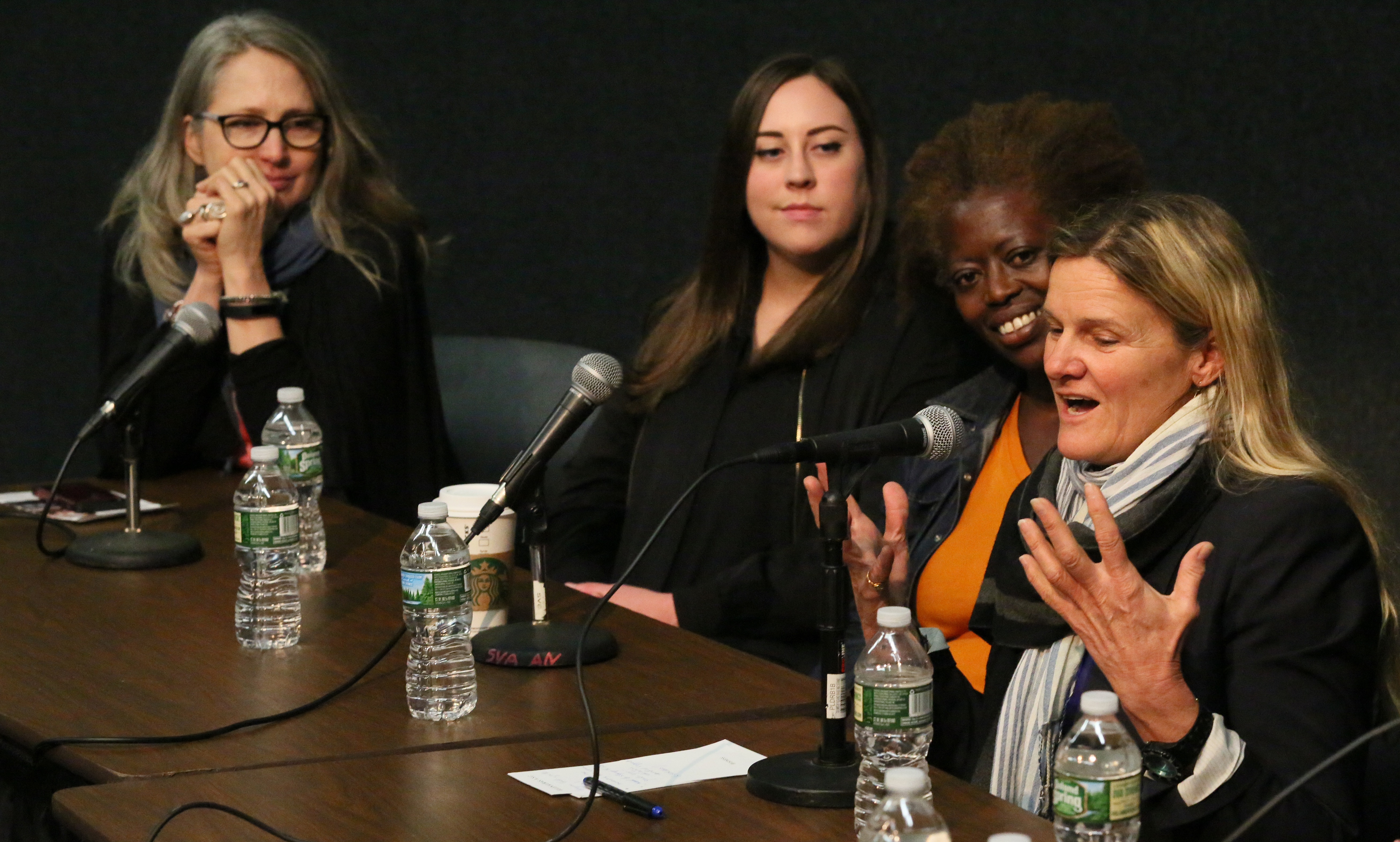
Kuras added that she has benefited immeasurably from the constellation of colleagues she has formed in production and postproduction over the years. “Technology is changing very rapidly in this business, and it’s impossible to know everything,” she told the audience. “Many people have been instrumental in supporting me. Filmmaking is not about the studios and the bottom line; it’s a community, and what makes it magical are all the people you don’t see.”
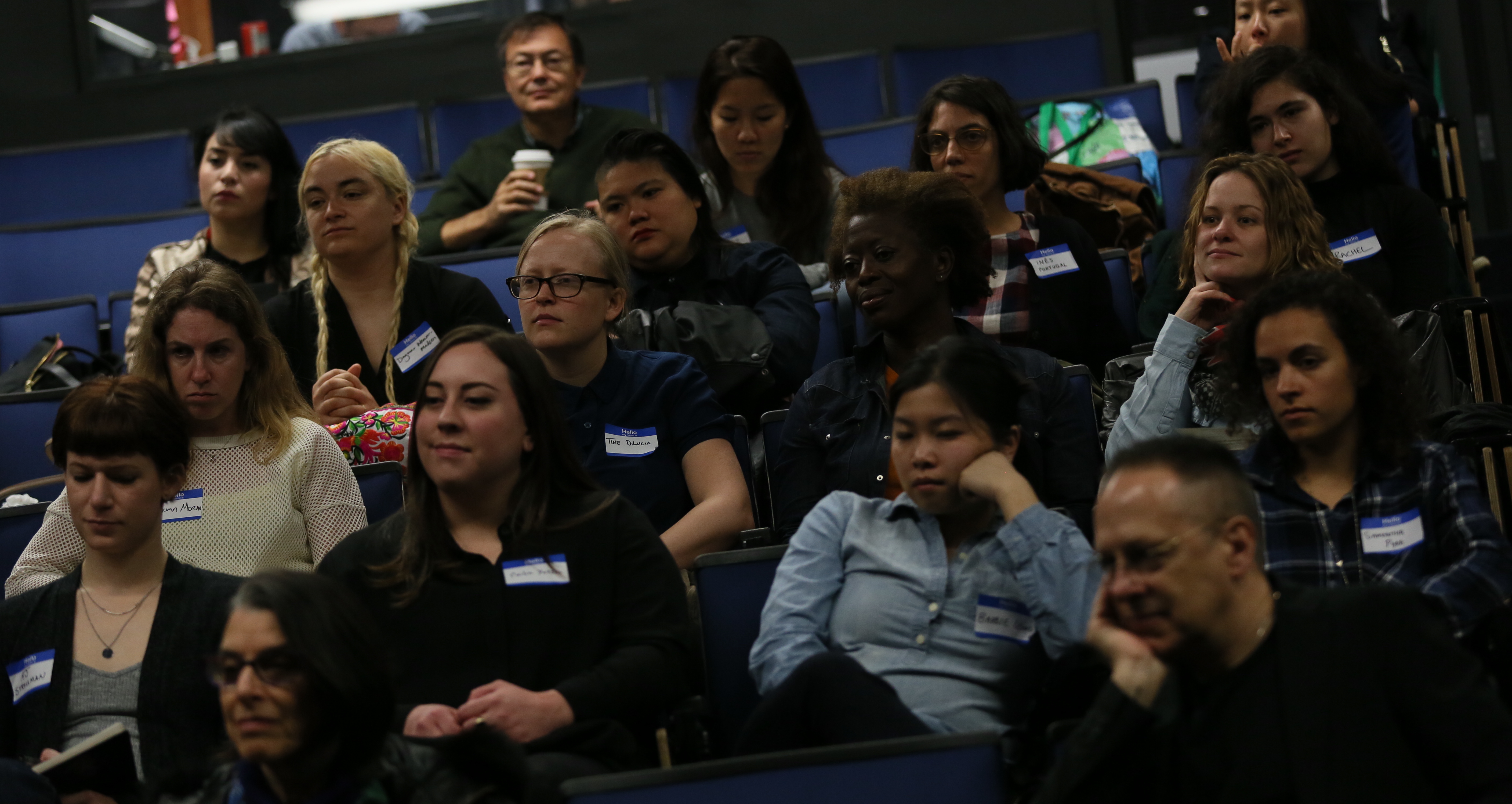
Hubbell, who works closely with cinematographers through her job at Kodak, advised the audience to “meet all the artists you can meet, and be able to solve problems. Some of my best professional relationships came out of disasters.”
The shortage of women in the production sector has received a lot of attention in recent years, but Bliss, who worked at Deluxe Laboratories and EFilm before moving to Panavision, pointed out that the problem pervades other, less visible sectors as well. “Female colorists have a really hard time [finding work],” she said. “It was so noticeable when I was hiring at Deluxe that we started grooming women for the job. At Panavision, we recognize that rental houses feed the industry, and we’ve started reaching out to community colleges and other schools to try to create a more diverse workforce.”

Martin noted that social media can be a viable way to grow a professional network. After she met director Lexi Alexander on Twitter, Alexander hired her to shoot her first virtual-reality project. “Neither one of us knew anything about virtual reality,” Martin added. “It’s great when you can hook up with someone who doesn’t expect you to know everything, but knows you’re smart enough and professional enough to figure it out by the time you have to shoot.”
When one audience member asked the panel how they avoid being professionally pigeonholed, it became apparent that no one has avoided that altogether. Both Morano and Kuras talked about the challenges of launching a directing career after finding success as a cinematographer. Even after directing and shooting the indie feature Meadowland, Morano found it difficult to land a meeting about directing Hulu’s The Handmaid’s Tale (to be covered in the June 2017 issue of AC) until the project’s star, Elisabeth Moss, intervened on her behalf. (Moss played a supporting role in Meadowland.)
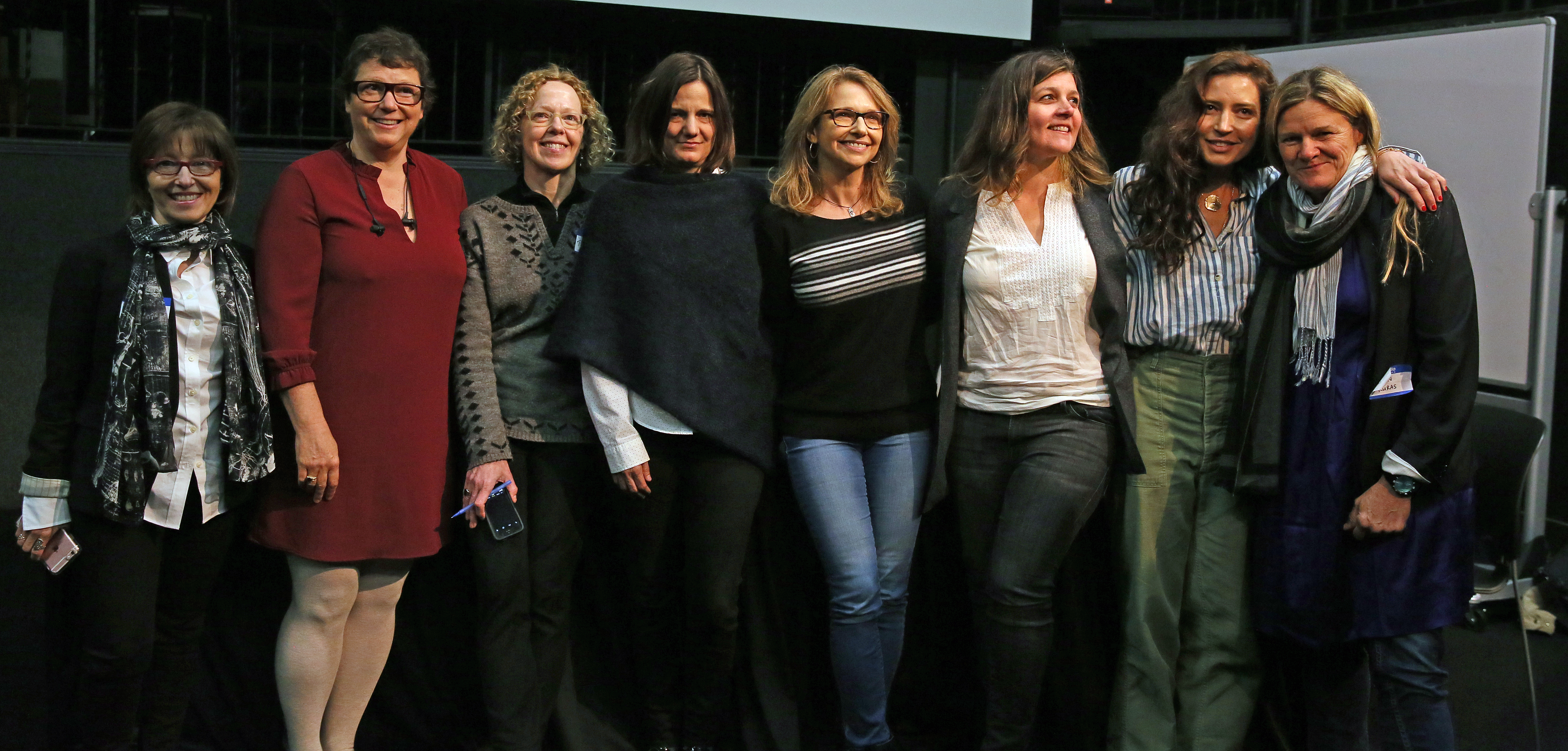
Pusheck said she loved working as a camera operator so much that it took her several years to decide to transition to cinematographer, and because she has worked steadily in primetime television (on such shows as Revenge and Brothers & Sisters), “I think getting back into features is almost impossible at this point. But for me, TV has been a fantastic ride. There’s so much great work out there now.
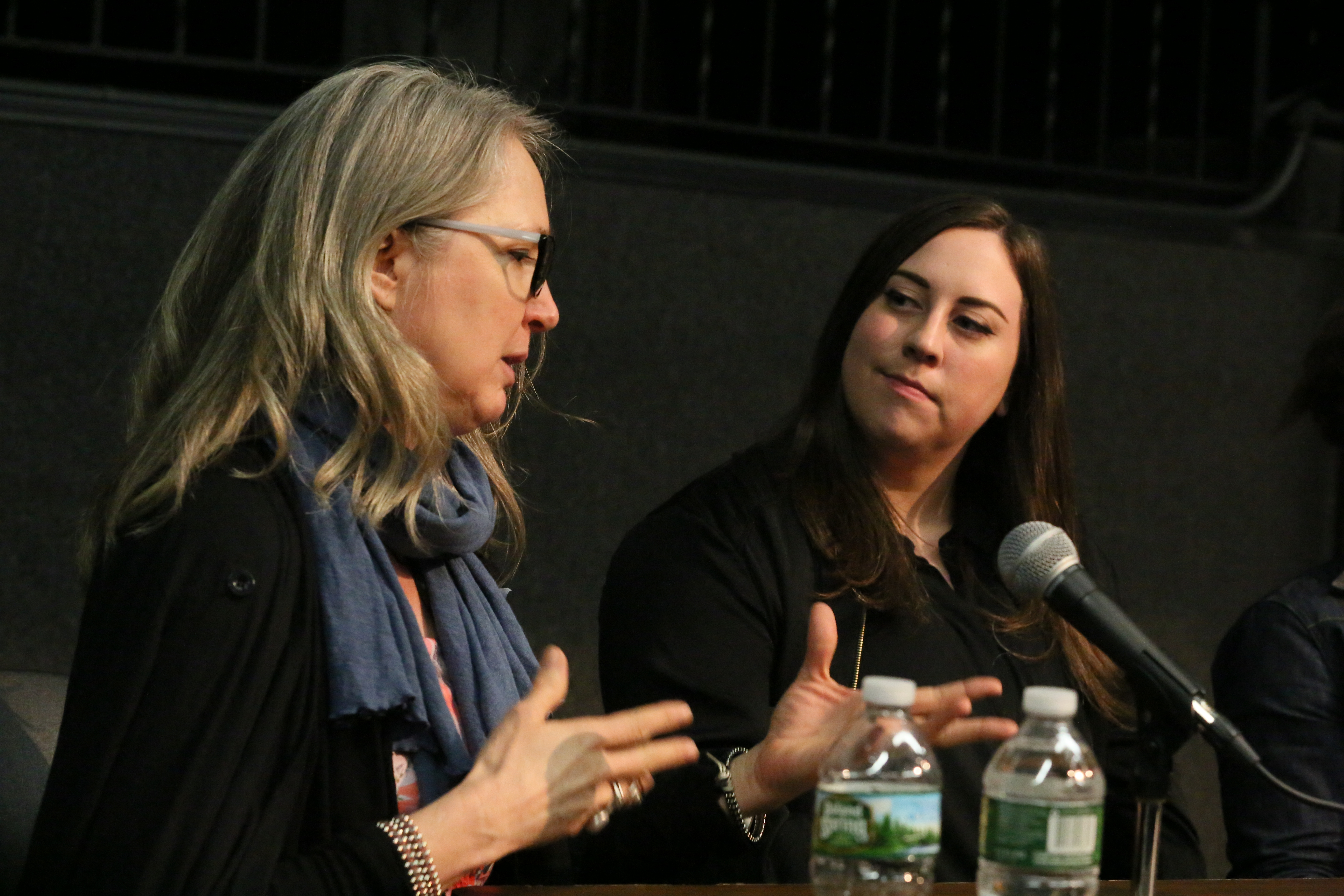
“I think TV is a great place for people to move up,” Pusheck added. “Many of these shows run for awhile, and that can create a lot of opportunities, but you should make sure your colleagues know that’s what you want. Also, you shouldn’t necessarily think of cinematography or directing as some end goal you have to reach. There are a lot of great jobs out there that might make you happier. For some people, choosing to stay as an operator is a great choice. Do what feels right for your life. Your goals change as your life changes.”
The ASC hosted a similar event at its Hollywood headquarters last year. You can read about it here.
